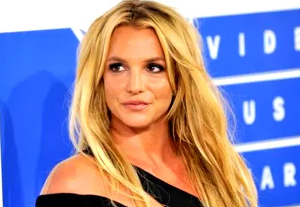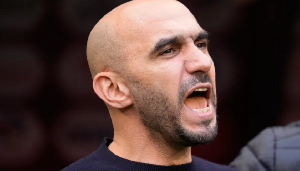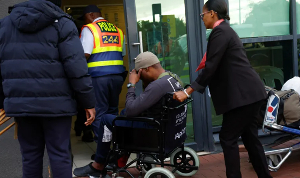This question on the surface appears ridiculous. However, anyone who has followed Ghana?s foreign policy since 1960s will tell you that the question is worth asking. I for one genuinely think we do not have a distinctly Ghanaian foreign policy niche.
Our foreign policy since 1972 is at best ?follow the crowd? type, and at worst, ?no foreign policy? stance at all. I used the two phrases, that is, ?follow the crowd? and ?no foreign policy? to mean a foreign policy that has no coherent and distinctive doctrinal orientation and niche. The distinctive markers of such a foreign policy are, first, government officials are reactionary rather than proactive, second, official stated foreign policy goals are usually vague and foreign minister frequently flip floppers , and third, the executive rather than well trained professionals becomes the implementer of the policy.
Ghana?s foreign policy since Nkrumah/Busia exhibits the above tendencies. Many Ghanaians were unhappy at the frequent tricking of the President during his first term. But as many foreign policy experts will tell you frequent trips of Presidents are typical of states without any well established foreign policy niche. Unlike states with established niche whose leaders travel primarily to seal deals already worked out or to engage in diplomatic niceties, leaders of countries without well established stance do the diplomacy themselves. Talk to Nigerians, Togolese etc experts on foreign policy and they will tell you the same story. In such states, foreign policy orientation is based on the whims of who ever is in power. The President views on international affairs constitute the foreign policy stance of the country. You hardly find these in countries such as South Africa, Botswana, and of course, many advanced countries.
I was one of those people who thought the NPP will solve our lack of clear foreign policy stance by developing a long term and well fashioned foreign policy niche that is grounded in economic imperatives. If I were disappointed at the NPP?s inability to issue a major foreign policy document in the first four years, the extent of my dissatisfaction reached an unbearable height on December 15, 2004, when Nana Akufo-Addo suggested that there will be no major overhaul of our foreign policy.
Maybe, Nana needs to be reminded that our missions abroad are not attracting the necessary investment and other returns. Perhaps, Nana wants to be told that you get to know we have people manning some of our critical missions only during festive occasions. Neither do we have the technical and analytical resources to take advantage of the opportunities presented by the international trading system and bilateral relations, nor do we have what it takes to woo good foreign investors. There is a famous saying in places like Geneva that some missions have staffs that are there only ?to eat good food.? I am not suggesting that we belong to the ?eat good food? group but we may not be far from it. Our missions have become places for big parties and ?arenas for enjoyment.? There are no serious efforts to get value for the huge dollars we spend in maintaining them.
I am not making just speculative claims. Only two examples will do for now. First, I once recommended to a friend who was writing a major policy document on Africa for one of the Northern countries to add concerns of Ghana and s/he was treated as if s/he was soliciting money from the mission staff. This mission opens at 11am and closes at 3pm. It was therefore unsurprising that the mission officials could not find 30 minutes to add Ghana?s concerns to the report which was read by the very people we expect goodies. In another case, a friend offered to upgrade and update for free a webpage in one of our missions which was in a deplorable condition. This is a mission that should bring lots of investment and yet the information we put up there was outdated, translation of our message to the language of the host country was terrible and a whole lots of other unprofessional stuffs.
Anyway, after almost a year and half the only thing this friend received from the mission was acknowledgement of receipt of the offer and a promise to get in touch over the phone. The webpage still remains in that terrible condition and this friend is still waiting for the gracious call. The idea of professionalism and skills (I mean real skills and not the simplistic equation of rhetorical ability with talent) are gradually disappearing from our missions. There may well be some remnants of the skilled individuals we once had, but the number is just dwindling at an alarming rate. Yet this is a country that has an academic center, staffed with people who take dollars, purportedly to nurture skilled foreign policy officers. The centre is also supposed to help us develop a coherent foreign policy.
Are we getting value for these dollars? Of course, they will find easy scapegoats if you did talk to the powers that be at the center. What they will not tell you is that the instructors at the center trick to town and in courtrooms in droves in search of more money instead of reading current materials or updating their course materials. What skills do you expect from the trainees when they are only exposed to out of date works such as Organski/Morgenthau?s books? Surely, such individuals cannot compete with trainees who are abreast with current information in leading scientific journals such as International Organization, International Negotiation just to mention a few.
Interestingly, the university where the center is based has ways to get access to new scientific works but I?m well aware that the patronage is not that great. The desire for more money has replaced the quest for knowledge in some of our universities.
Thus, we should not blame only the politician? we are good at making them scapegoats all the time? for Ghana?s lack of a good foreign policy and the terrible condition of our missions. We should also question our academics. Not only have they failed to produce the skilled and professional officers we need, but also they have even failed to initiative national debate aimed at helping Ghana develop a proper foreign policy orientation. A PhD candidate in mathematics from one of the Ivy League schools in the U.S once told me a time will come when Ghanaian farmers will be on the street demanding to know the value for their money that government gives to the universities as subversions. I thought he will soon graduate not in mathematics but in lunaticism; I did not tell him though but only told him to take a break from studies.
But with the names of our academics absent in leading scientific journals, their voices unheard in major public discourses and debates, their notes out of date, their inputs in national policy documents absent and their influence on national development questionable, I am tempted to think that the hypothesis of my supposedly lunatic friend may one day have empirical support. It is about time our academics begin to initiative and direct national debate. They should not leave public discourse and important national debate to radio presenters and newspaper editors. Ghana?s foreign policy may be a good starting point.
Happy holidays
Opinions of Tuesday, 28 December 2004
Columnist: Boateng, Kwaku
Does Ghana have a foreign policy?
Entertainment













